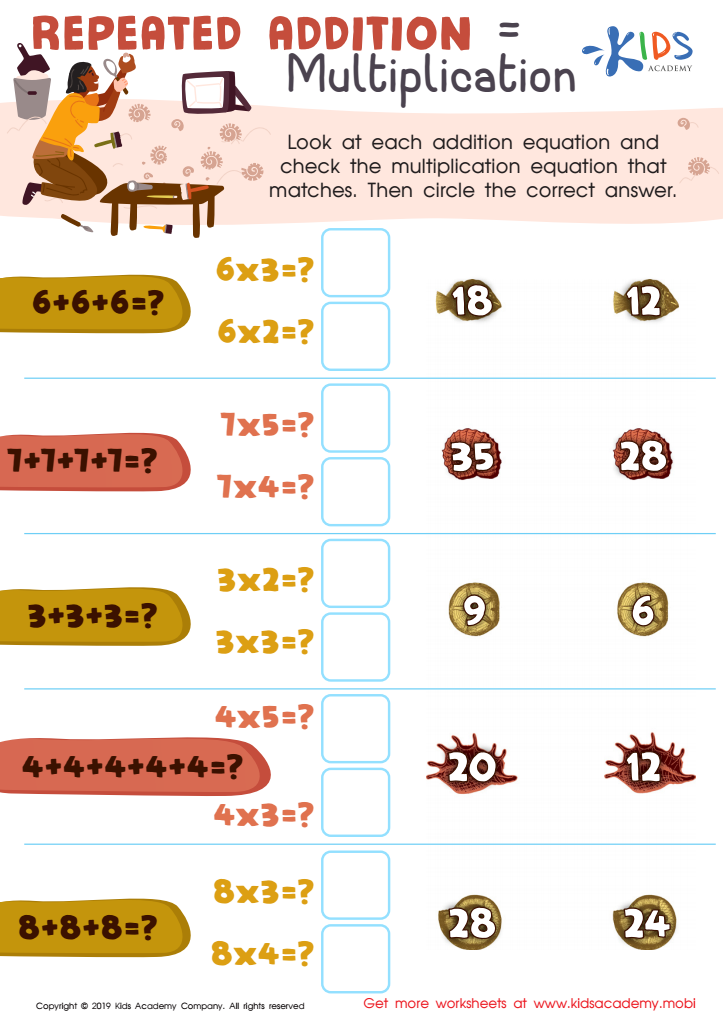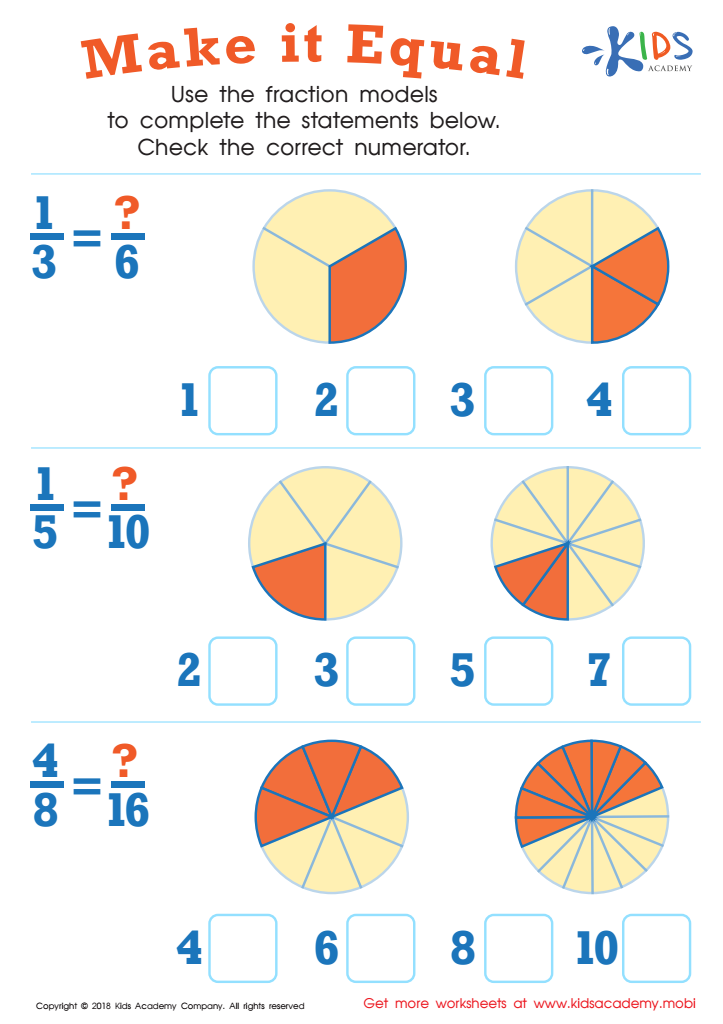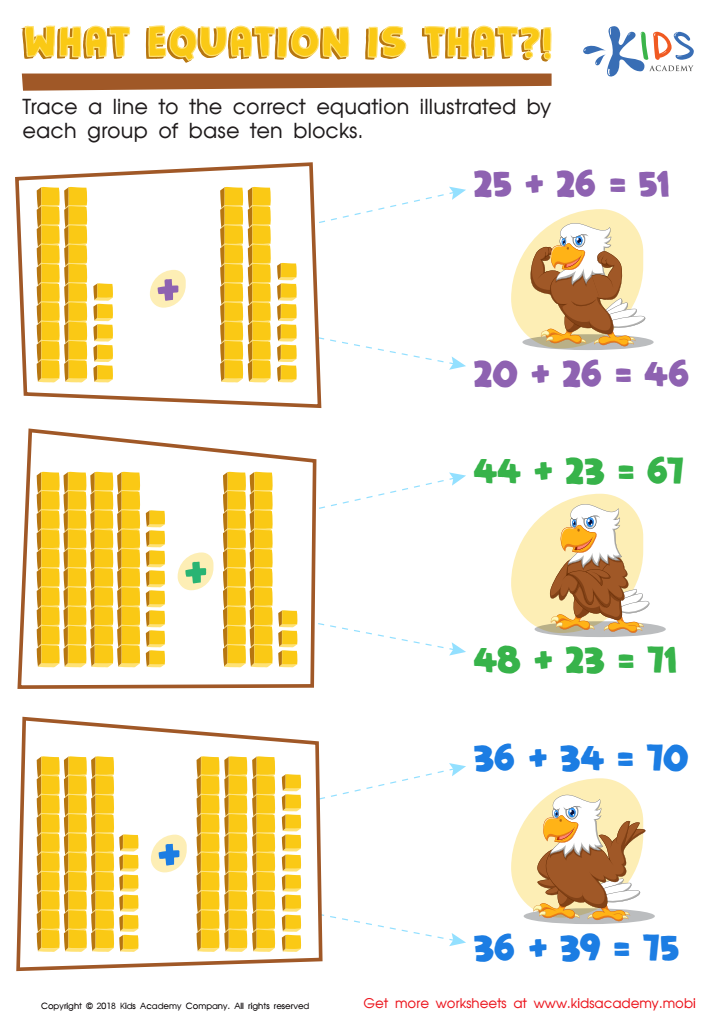Developing problem-solving abilities Normal Math Worksheets for Ages 7-9
3 filtered results
-
From - To
Boost your child’s critical thinking with our comprehensive math worksheets tailored for ages 7-9. These engaging exercises are designed to enhance problem-solving abilities through practical and challenging tasks. Each worksheet encourages independent thinking, promotes logical reasoning, and offers real-life math scenarios, making learning both fun and relevant. At Kids Academy, we prioritize building a strong foundation in math that will benefit your child throughout their academic journey. Empower your child to confidently tackle math problems and develop essential skills that extend beyond the classroom. Discover the joy of learning with our expertly crafted resources!


Repeated Addition = Multiplication Worksheet


Make It Equal Worksheet


What Equation Is That? Worksheet
Developing problem-solving abilities in children aged 7-9 is essential because these skills are foundational not only for their future academic success but also for life beyond the classroom. At this age, children are molding their cognitive abilities and establishing patterns in thinking that will last a lifetime. When parents and teachers focus on nurturing problem-solving skills through math, they help students build critical thinking, resilience, and creativity.
Math problems present opportunities for children to recognize patterns, draw connections, and devise strategies, all of which are critical elements of problem-solving. These skills are transferable to subjects beyond math and into real-world scenarios, enabling children to approach challenges confidently and resourcefully. When a child learns to tackle a tough math problem systematically—breaking it down into smaller, manageable parts—they also learn valuable life strategies such as persistence and patience.
Moreover, developing problem-solving abilities also fosters a growth mindset. Children learn that effort and practice can lead to mastery, making them more likely to tackle difficult tasks and view challenges as opportunities rather than setbacks.
Parents and teachers play pivotal roles in this developmental phase. By prioritizing problem-solving in math, they equip children with intellectual tools and a positive mindset that underpin lifelong learning and adaptability in an ever-evolving world.
 Assign to My Students
Assign to My Students





















